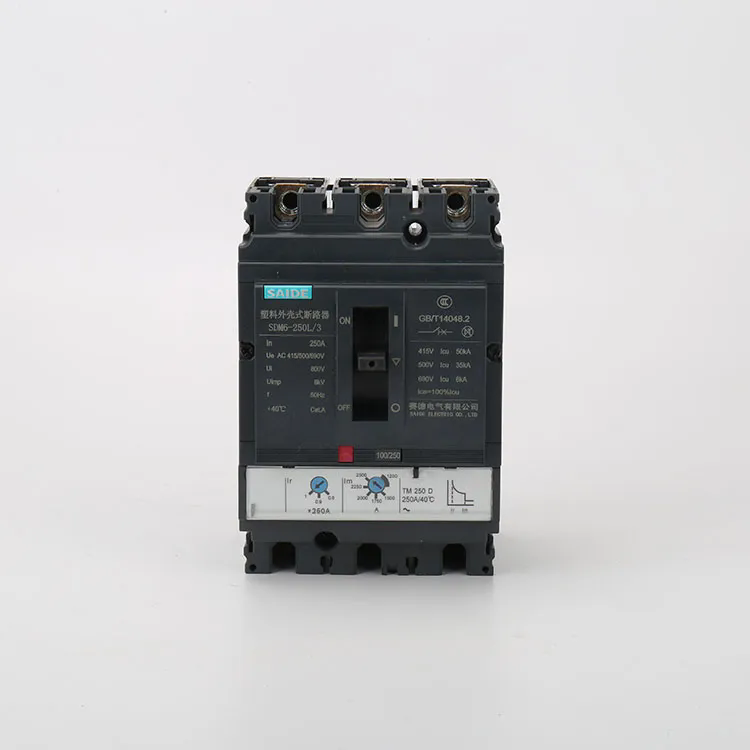Plastic Moulded Case Circuit Breaker: Your Questions Answered
2024-10-30
Plastic moulded case circuit breakers (MCCBs) are essential components in electrical systems, providing protection against overloads and short circuits. In this blog post, we’ll answer some common questions about plastic moulded case circuit breakers to help you understand their features, benefits, and applications better.
What is a Plastic Moulded Case Circuit Breaker?
A plastic moulded case circuit breaker (MCCB) is an automatic electrical switch designed to protect an electrical circuit from overloads and short circuits. The casing is made from durable plastic materials, making it lightweight yet robust. MCCBs are typically used in low to medium voltage applications and can handle higher current ratings than standard miniature circuit breakers (MCBs).
How Does a Plastic Moulded Case Circuit Breaker Work?
MCCBs function by detecting excessive current flow in an electrical circuit. When the current exceeds the rated limit, the MCCB trips and interrupts the circuit to prevent damage to electrical equipment. This protection is achieved through a combination of thermal and magnetic mechanisms:
- Thermal Tripping: Uses a bimetallic strip that bends when heated by excessive current, causing the breaker to trip.
- Magnetic Tripping: Relies on electromagnetic forces to trip the circuit almost instantly in case of a short circuit.
What Are the Advantages of Plastic Moulded Case Circuit Breakers?
1. Robust Protection: MCCBs provide excellent protection against overloads and short circuits, ensuring the safety of electrical systems.
2. Durability: The plastic casing is resistant to corrosion and environmental damage, making MCCBs suitable for various applications.
3. Adjustable Settings: Many MCCBs come with adjustable current ratings, allowing users to set the trip threshold according to specific needs.
4. Easy Installation: Their design often allows for straightforward installation in both commercial and industrial settings.
5. Compact Design: Compared to traditional metal-cased circuit breakers, plastic MCCBs are lighter and take up less space.
Where Are Plastic Moulded Case Circuit Breakers Commonly Used?
Plastic moulded case circuit breakers are utilized in a wide range of applications, including:
- Industrial Facilities: Protecting motors, transformers, and other heavy equipment.
- Commercial Buildings: Ensuring safety in electrical panels and distribution boards.
- Renewable Energy Systems: Used in solar and wind power installations for circuit protection.
- Residential Applications: Providing safety in home electrical systems, especially in larger installations.
How Do I Choose the Right Plastic Moulded Case Circuit Breaker?
When selecting a plastic moulded case circuit breaker, consider the following factors:
1. Current Rating: Choose an MCCB with a current rating that matches the maximum expected load of your electrical circuit.
2. Voltage Rating: Ensure the MCCB is suitable for the voltage level of your application.
3. Tripping Characteristics: Decide whether you need thermal, magnetic, or a combination of both types of tripping mechanisms based on your application.
4. Environmental Conditions: Consider the installation environment (temperature, humidity, dust exposure) to ensure the MCCB is suitable for those conditions.
Are There Any Limitations to Plastic Moulded Case Circuit Breakers?
Yes, plastic moulded case circuit breakers do have some limitations:
- Cost: While generally affordable, MCCBs can be more expensive than standard circuit breakers, especially for higher ratings.
- Maintenance: Regular inspection and testing are necessary to ensure they function correctly over time.
- Not Suitable for Very High Voltages: MCCBs are primarily designed for low to medium voltage applications and may not be suitable for very high voltage systems.
Conclusion
Plastic moulded case circuit breakers are vital for safeguarding electrical systems in various settings, from industrial plants to residential homes. By understanding their functionality, advantages, and limitations, you can make informed decisions about using them in your electrical projects. If you have any further questions about plastic moulded case circuit breakers, feel free to ask!



